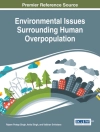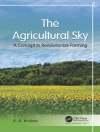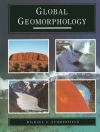Hydrology is vital to human civilisations as well as to natural ecosystems, yet it has only emerged as a distinct scientific discipline during the last 50 years or so. This book reviews the development of modern hydrology primarily through the experiences of the multidisciplinary team of scientists and engineers at Wallingford, near Oxford, who have been at the forefront of many of the developments in UK hydrological research. These topics include:
* The development of basic understanding through the collection of data with specialised instrumentation in experimental basins
* The study of extreme flows – both floods and droughts
* The role moisture in the soil
* Studies of the processes controlling evaporation
* Water resource studies
* Modelling and prediction of the extremes of flow improved
* Understanding of water quality issues
* A widening recognition of the importance of an ecosystem approach
* Meeting the challenges of climate change,
* Data handling
* Future developments in hydrology and the pressures which generate them.
Readership: hydrologists in both academia and a wide range of applied fields such as civil engineering, meteorology, geography and physics, as well as advanced students in earth science, environmental science and physical geography programmes worldwide.
Inhaltsverzeichnis
List of Contributors ix
Chapter Reviewers xiii
Foreword xv
Preface xvii
Acknowledgements xix
Acronyms xxi
1 INTRODUCTION 1
John C. Rodda, Mark Robinson, Jim Mc Culloch, Christine Mc Culloch, Alan Jenkins, Terry Marsh, Celia Kirby, Ian Littlewood, Max Beran and Graham Leeks
2 BASIN STUDIES AND INSTRUMENTATION 23
Ian Strangeways, Mark Robinson, Jim Hudson, John C. Rodda, Malcolm Newson and David J. Cooper
3 RISKS AND EXTREMES 60
Lisa Stewart, Max Beran, Frank Farquharson, Duncan Faulkner, David Jones, Thomas Kjeldsen, Malcolm Newson, Enda O’Connell and John Sutcliffe
4 TERRESTRIAL HYDROLOGICAL PROCESSES 100
David J. Cooper, John Bell, Martin Hodnett, Keith Beven, Kevin Gilman, Atul Haria, Cate Gardner, Mark Robinson, Jon Evans and Helen Ward
5 THE PHYSICS OF ATMOSPHERIC INTERACTION 135
Colin Lloyd and Sylvia Oliver
6 WATER RESOURCES SECURITY 183
Frank Farquharson, Max Beran, John Bromley, Alan Gustard, Helen Houghton-Carr, Gwyn Rees, John Sutcliffe and Andy Young
7 HYDROLOGICAL MODELLING 216
Keith Beven, James Bathurst, Enda O’Connell, Ian Littlewood, Jim Blackie and Mark Robinson
8 WATER QUALITY 240
Richard Williams, Colin Neal, Helen Jarvie, Andrew Johnson, Paul Whitehead, Mike Bowes and Alan Jenkins
9 ECOHYDROLOGY 267
Mike C. Acreman, James R. Blake, Laurence R. Carvalho, Mike J. Dunbar, Iain D. M. Gunn, Alan Gustard, Ian D. Jones, Cedric Laizé, Stephen C. Maberly, Eleanor B. Mackay, Linda May, J. Owen Mountford, Bryan M. Spears, Charlie J. Stratford, Stephen J. Thackeray and Ian J. Winfield
10 CLIMATE CHANGE AND HYDROLOGY 302
Richard Harding, Nigel Arnell, Nick Reynard, Christel Prudhomme, Eleanor Blyth and Chris Taylor
11 HYDROLOGICAL DATA ACQUISITION AND EXPLOITATION 324
Terry Marsh, Roger Moore, Harry Dixon, Jamie Hannaford, Alan Gustard, Andy Young, Melinda Lewis, Colin Neal and Gwyn Rees
12 LOOKING TOWARDS THE FUTURE 366
John C. Rodda, Mark Robinson, Alan Jenkins, Keith Beven, Max Beran and Graham Leeks
Index 379
Über den Autor
John Rodda has a life time of experience as a hydrologist with UK governmental and international bodies, particularly the World Meteorological Organization, Geneva, where he was Director of the Hydrology & Water Resources Department. He has authored some 100 scientific papers and 8 books on a wide range of topics. He has held the office of President of the International Association of Hydrological Sciences and several other prominent positions in the international world of water.
Mark Robinson has a lengthy career as a hydrologist, working at the Centre for Ecology and Hydrology, Institute of Hydrology and at several UK universities. His work has encompassed land use change studies including agricultural drainage and forest hydrology, and for over a decade he was responsible for some of the UK’s longest running catchment studies. He has published extensively and is co-author of two highly regarded hydrological textbooks.












